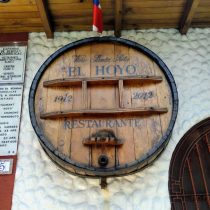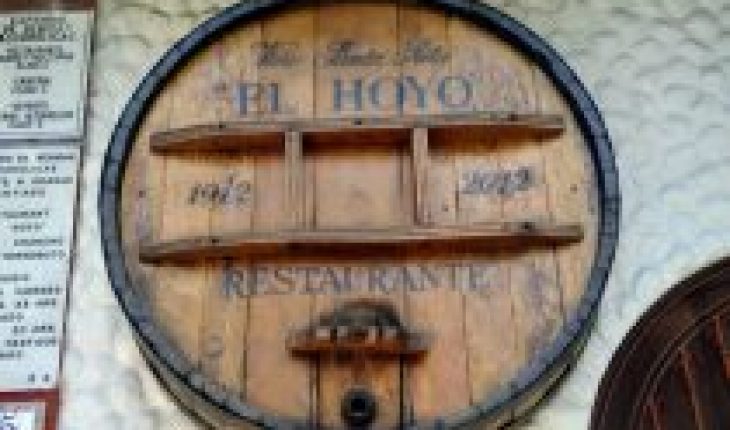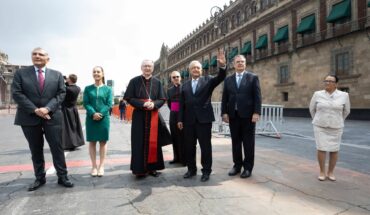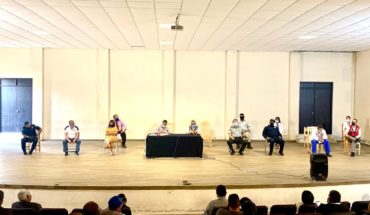
With the arrival of the Covid-19 many bars and restaurants have been due to close because they could not open by quarantines and not generate profits. However, this was not the case of El Hoyo, an emblematic Chilean place located in the commune of Estación Central, which closes due to age issues of its current owners and the fulfillment of a cycle.
The popular restaurant on the corner of San Vicente and Gorbea streets began its career in 1912. It was recognized by the national drink “El Terremoto”, also converted as a tourist attraction, where thousands of foreigners arrived each year.
The president of the Chilean Gatronómica Association of Chile, Máximo Picallo assimilates how important El Hoyo was to the gastronomy and culture of the country “El Hoyo is a restaurant that I think is one of the few that remain of what was the classic Chilean chanchería. Locals around La Vega, Franklin was made a Chilean cuisine of prietas, of rolls, of perns that is lost. And I think therein lies, in some way, the appeal that this place had, a place that is surely anchored in the early twentieth century. Very important was the earthquake, along with the Replica, so that has a lot of heritage value.”
Beginnings, highlights and the “Terremoto”
The history of this emblematic Chilean place begins in 1912, in a modest neighborhood of Central Station in front of the railways, “It started with a winery of Frutos del País, where coal, firewood and grass bes kale that was sold in those years”, says one of the owners of the place, Guillermo Valenzuela.
He is part of the third generation that managed El Hoyo, which his grandfather started in a small restaurant selling chicha, “Then times were changing in the fifties, and my grandfather started selling chicha, pipeño, hard-boiled eggs and charqui. And that’s what he kept up with when his kids grew up, we’re talking about the second generation, which would become my dad, in the sixties,” he explains.
Then, in the seventies it was the turn of the generation of Don Guillermo, “We assume those who are today. There are four brothers left, but of the four brothers, who speak, I am the youngest and I am 70 years old,” he says.
The seventies was the boom of El Hoyo, where its owners began to add more variety to their menu and, above all, the Earthquake was born “That’s where we started selling casseroles, I started making tights, rolled and selling tongue. And since in 1978 I started inventing the earthquake, I had a concern to make a nice drink, in a large glass, and there I invented the earthquake, but it had no name. As the earthquake came in 1985, with the same people we came to an agreement, that this drink was like an earthquake, and as the earthquake is, there is also the replica,” he says.
The business became more international, where it was even visited by renowned chef Anthony Bourdain, “Don Anthony, may he rest in peace, was around in 2010 in Chile and toured from Arica to Puerto Montt Chile. And of all the restaurants he toured in Chile, he chose El Hoyo as the best business in Chile,” he recalls.
Valenzuela says that, on that occasion, the international chef Anthony Bourdain tried his renowned dishes as the cow tongue, “He also tried the prietas, which found them spectacular, because really the prietas are made in the business, and I think this is one of the few businesses that make all their food, we don’t buy anything made from outside. In the business the coves are made the rabbit is prepared, the rice is done, everything is done at home, and I believe that this has also been our success”, counts satisfied with his family venture.
The end of an era
This year, El Hoyo has come to an end, because its owners decided to close it because of an age issue and years in time, “The decision to close the business and finish it all was a matter more than anything old, as I mentioned earlier, I am the under four brothers and I am seventy years old, my brothers are 79 , 78 and 76, then there was no succession in this. My children, for example, were not interested in the place, my nephews did not either, so the decision was made to close.”
However, its owner acknowledges that the place is not closing due to the Covid-19 health crisis or some mismanagement, “We have not done badly, in fact, the business still does great. We were closed by the 2020 crisis, now it opened again, and these days we have had open, in phase 2, every day we have had the place full. However, more than anything we closed because time passed us the bill,” he says.
According to Maximus Picallo, when this place is closed it is not only pit is an enclosure that could be a tourist attraction, but you miss something from the heart of Chilean gastronomy in the history of Chile, “From the gastronomic point of view, there are very little left of these premises, and we find it extremely important as a Chilean Gastronomy Association that hopefully this business someone can buy and perpetuate in time , although if it’s not in the same place, it’s always hard for locals to keep that story they could have.”





